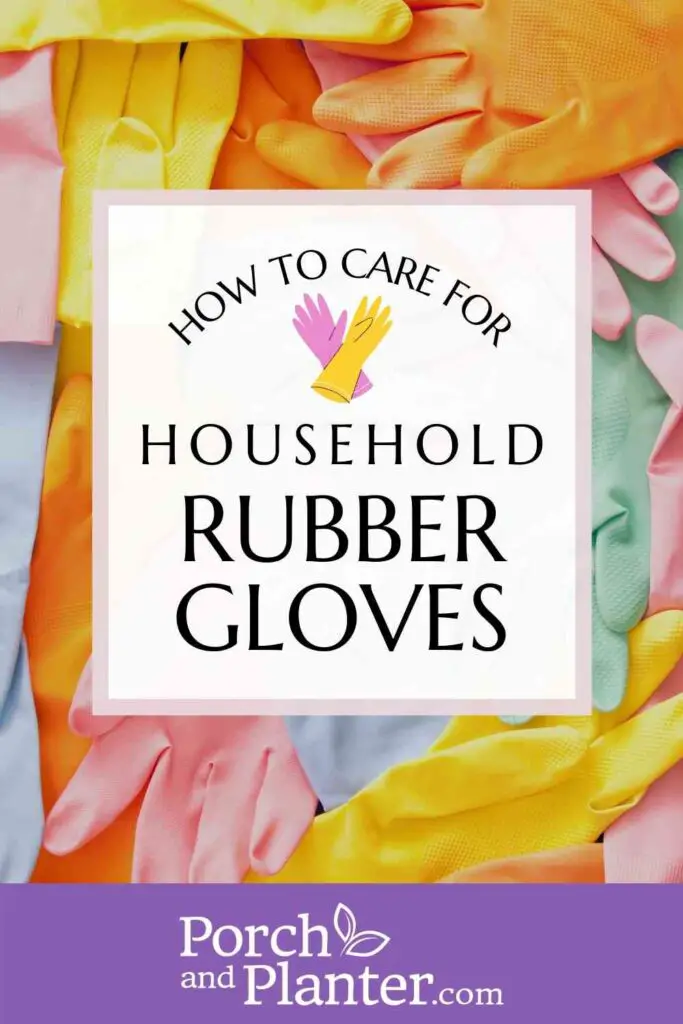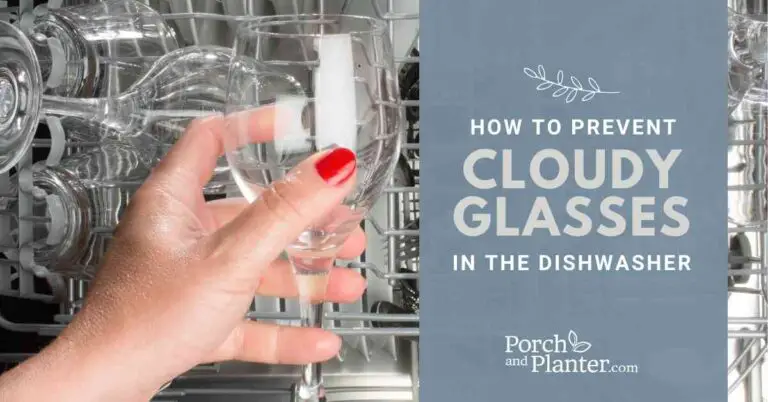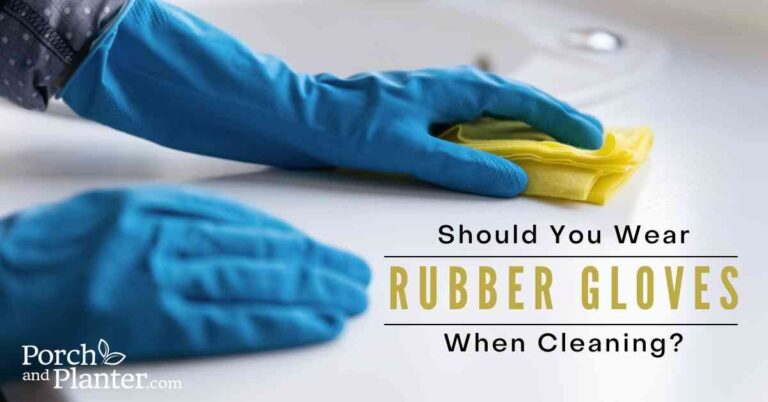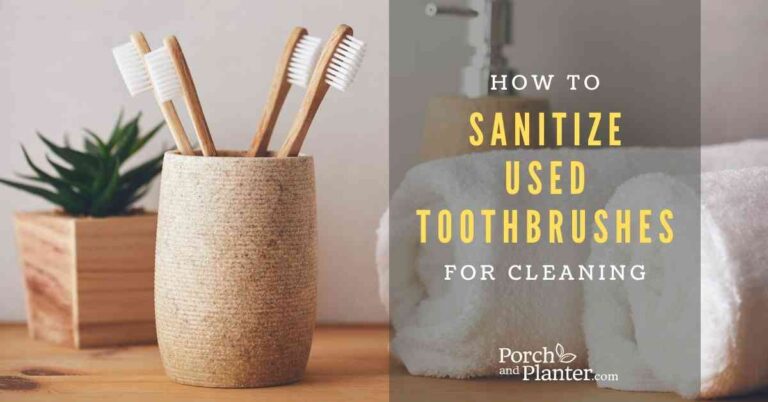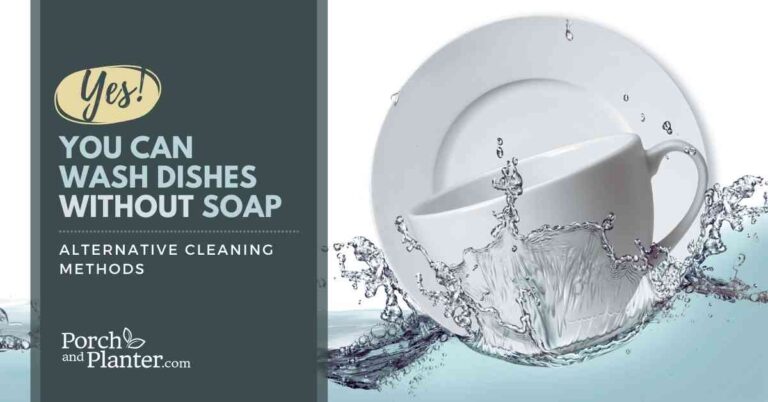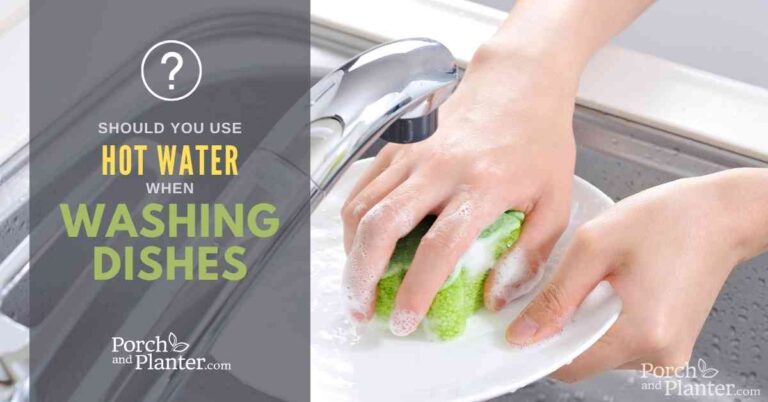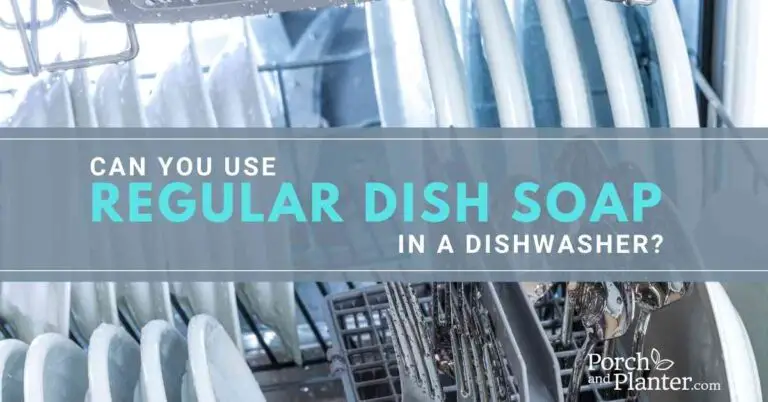How to Care for Household Rubber Gloves
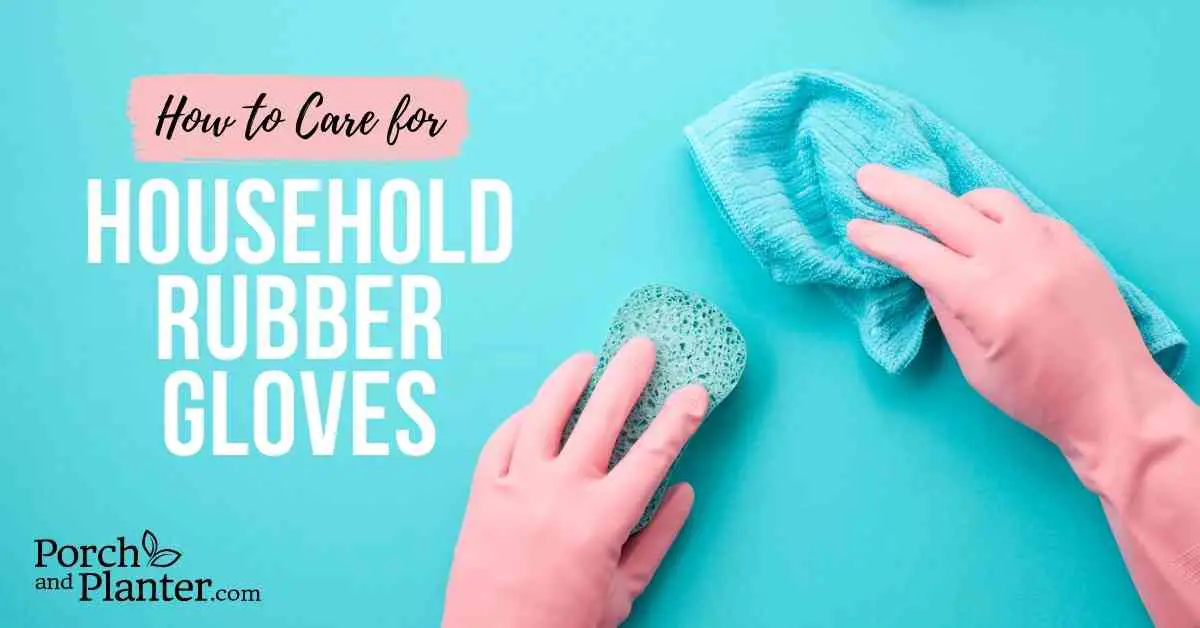
You use your rubber gloves in the kitchen to wash dishes and take care of other household tasks, but how often do you actually think about caring for them? Without proper care, gloves can hold dirt and bacteria, so it’s important to keep them clean, and simply throwing them out and getting new ones all the time is awful for the environment. In this blog post, we will teach you how to properly care for your rubber gloves so they remain sanitary and last longer!
Why It’s Important to Clean Your Gloves
The gloves you for household cleaning can get dirty over time, so it is important to clean them so the bacteria on them don’t contaminate the things you are cleaning.
Cleaning your gloves also allows you to rinse any harsh chemicals off of them that could damage the rubber over time. This will keep your gloves in better shape and give them a longer lifespan, which is better for the environment!
In addition to preventing the spread of bacteria, cleaning your gloves also has health benefits. Over time, gloves can accumulate sweat and oils from your skin, which can cause an unpleasant odor and even lead to skin irritation. By cleaning your gloves regularly, you can avoid these issues and ensure that they remain hygienic for use in the future.
Furthermore, cleaning your gloves is an essential part of maintaining good hygiene in your home. If your gloves are dirty, they can easily transfer dirt and bacteria to the surfaces and objects you are cleaning, which defeats the purpose of cleaning in the first place. By keeping your gloves clean, you can ensure that your cleaning efforts are effective and that you are maintaining a clean and healthy living environment for you and your family.
How Often Should You Clean Your Gloves?
Ideally, you should clean your gloves every time you finish using them. This helps to prevent the built-up dirt and bacteria on your gloves and prevents them from contaminating other surfaces.
However, there may be times when you don’t have the time or resources to clean your gloves immediately after use. In these situations, it is recommended to clean your gloves as soon as possible. Leaving gloves unwashed for too long can cause the bacteria to multiply and potentially cause infections or illnesses.
The frequency of cleaning your gloves also depends on how often you use them and the type of cleaning tasks you perform. If you use gloves for heavy-duty cleaning tasks or in environments with high levels of bacteria or germs, you may need to clean them more frequently. On the other hand, if you only use your gloves for light cleaning tasks, you may be able to clean them less often.
Another factor to consider is the type of gloves you are using. Some gloves are designed for single-use and should be disposed of after each use, while others can be washed and reused multiple times. Be sure to follow the manufacturer’s instructions for cleaning and maintaining your gloves to ensure their longevity and effectiveness.
Overall, it is best to err on the side of caution and clean your gloves as often as possible. By doing so, you can ensure the safety and hygiene of yourself and those around you.
How to Clean Your Gloves
When washing your gloves you will need to clean both the outside and inside of the glove to make sure that your gloves are completely sanitary.
Step 1: Wash the Outside of the Gloves
First, you’ll want to wash the outside of the gloves. To do this, put the gloves on like you normally would. You’ll then want to wash them like you’re washing your hands with hot water and dishwashing liquid. Make sure you scrub them well, covering every surface, and then rinse all the soap off.
Step 2: Wash the Inside of the Gloves
Next, you need to take the gloves off and turn them inside out. Put the glove on inside out and wash them again as you did with the outside of the gloves.
Step 3: Let the Gloves Dry
Finally, turn the gloves right side out and hang them with the fingers pointing upwards to dry. Hanging the gloves with the fingers pointing up will ensure that water doesn’t pool in the gloves while they dry.
How to Store Your Gloves
Properly storing your rubber gloves after use can help to prolong their lifespan and keep them clean and hygienic for the next use. Here are some tips on how to store your rubber gloves:
- Dry Them Thoroughly: After using your gloves, rinse them off with water and then dry them thoroughly. This will prevent moisture from building up inside the gloves, which can cause them to deteriorate more quickly.
- Store Them in a Dry Place: Store your gloves in a cool, dry place away from direct sunlight. Avoid storing them in damp areas like the bathroom or laundry room, as the moisture in the air can cause the gloves to break down faster.
- Avoid Folding Them: Folding your gloves can cause creases that can weaken the material over time. Instead, roll them up and store them in a drawer or on a hook.
- Use a Glove Holder: Consider using a glove holder to keep your gloves organized and in good condition. This can be a simple hook or a specialized glove holder that allows air to circulate around the gloves.
By following these tips, you can help to ensure that your rubber gloves stay clean and hygienic, and are ready for use the next time you need them.
When to Get New Gloves
It’s important to regularly check the condition of your rubber gloves and replace them when necessary. With proper care you can extend the lifetime of your gloves, but when is it time to throw in the towel and get a new pair of gloves?
Here are some signs that it’s time to get new gloves:
- Wear and tear: If you notice that your gloves are becoming thin, cracked, or have holes in them, it’s time to replace them. Over time, the rubber can break down and lose its protective qualities.
- Contamination: If your gloves have been exposed to harmful chemicals or contaminants, it’s best to replace them rather than risk exposing yourself to potential harm.
- Elasticity loss: If your gloves have lost their elasticity and no longer fit snugly on your hands, it’s time for a new pair. Gloves that are too loose can increase the risk of them slipping off or tearing.
- Lingering odor: If your gloves have a persistent odor even after washing, it may be time to replace them. The odor could be a sign of bacteria buildup or other contaminants.
By regularly inspecting your gloves and replacing them when necessary, you can ensure that they are always providing the best protection for your hands during household cleaning tasks.
Conclusion
Rubber gloves can be a useful tool when cleaning so it is a good idea to maintain them. One of the most important things you can do to care for your gloves is to wash them after each use. This will prevent dirt and germs from building up over time, which could make the things you wash unsanitary. You should also store your gloves in a dry place that’s away from any windows or places that are warm so they don’t melt when exposed to heat. Lastly, if holes start appearing on the gloves it may be time for a new pair!
